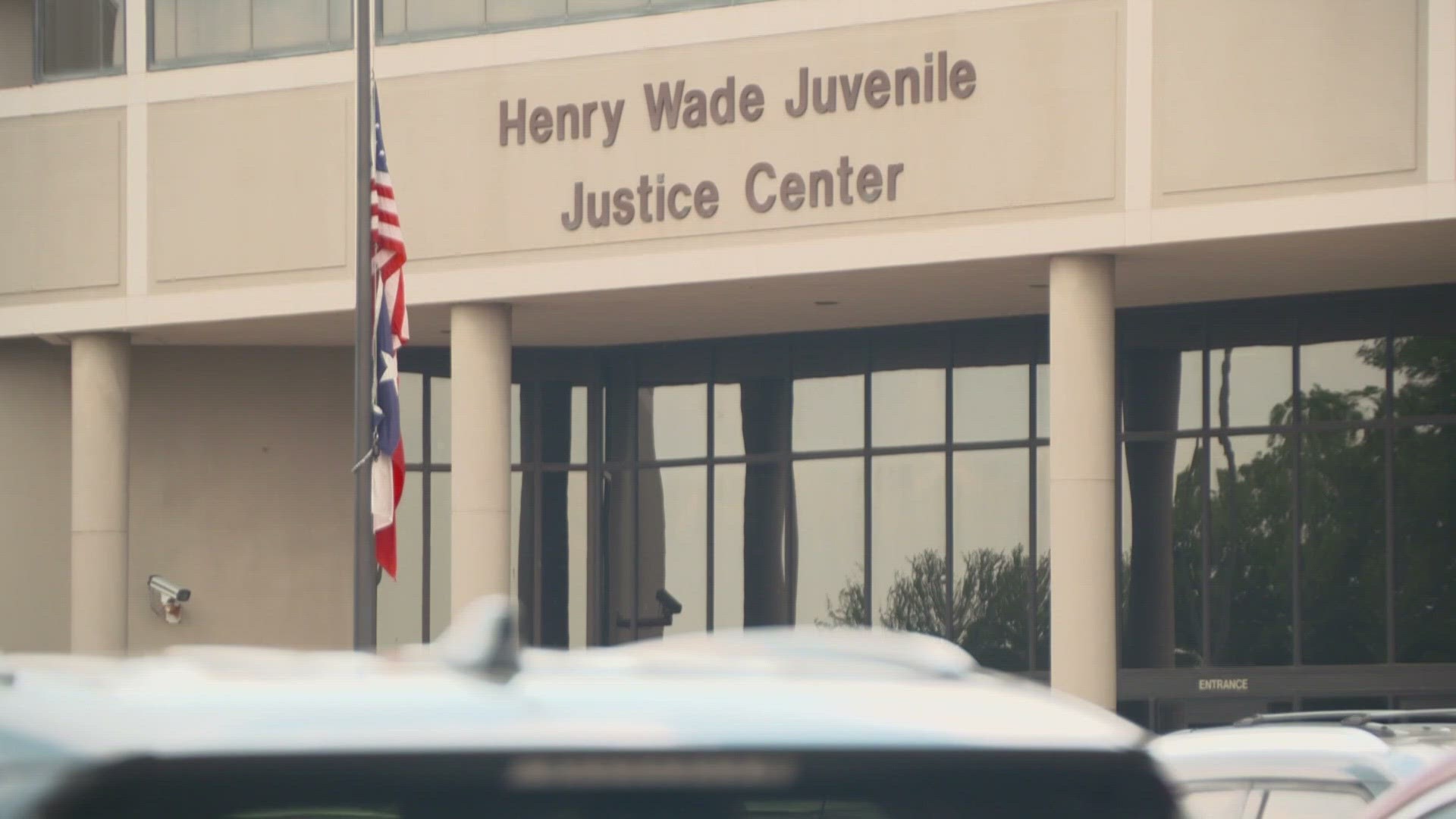DALLAS — A judge will decide which of two Dallas County departments will, or will not, get access to juvenile detention records that the county judge said are needed to solve suspected staffing problems at juvenile detention facilities.
"One thing became very clear that children were being held in isolation," said Dallas County Commissioner Andrew Sommerman, who said a study of juvenile detention records are needed to confirm -- and solve -- reported solitary confinement issues where juveniles have reportedly been held for up to 22 hours.
"I do not know the depth and breadth of this problem, and the only way I can know it is to obtain records," Sommerman told WFAA. Dallas County Commissioners Court, as a result, issued a subpoena to obtain the records from the Dallas County Juvenile Probation Department.
Instead, last week, attorneys representing the Dallas County Juvenile Department served Dallas County Commissioners Court with their own legal response: they said no.
"The whole document is protected, you have to start with that premise, the entire thing," said attorney Brian Hail, who is representing the Juvenile Probation Department and its executive director Darryl Beatty.
Filed May 30, the court filing is titled "Plaintiff's Original Petition for Declaratory Judgment and Protection from Improper Subpoena for Protected Records of Juveniles."
"The documents are privileged," Hail added, citing Texas law meant to protect the identity of juveniles. "Very limited amounts of people and for very limited purposes can access it."
Dallas County Judge Clay Jenkins said it's redacted records they are asking for, with names removed, so they can find out if staffing shortages are to blame.
"And get us the information we need so that together we can fix the problems in our juvenile department," Jenkins said.
"You have to start out with the understanding that the entire document is privileged and merely redacting identifiable information is not sufficient," added Hail. "And we believe providing even redacted information would be a violation of state law, which we believe is very clear."
"Let me be clear," said Sommerman. "If someone has a better way to solve this problem I'm in. As long as kids aren't in isolation, that's all I'm looking for. I don't care the method that we use to get there, so long as children aren't in isolation.
"Maybe they're right, maybe they're wrong, there's a proper procedure to go through it," said Hail. "And really it pained me to have to respond to this legally. I didn't like that but my clients have been told to produce these or you can be thrown in prison."
A judge's decision in Dallas District Court is pending.

